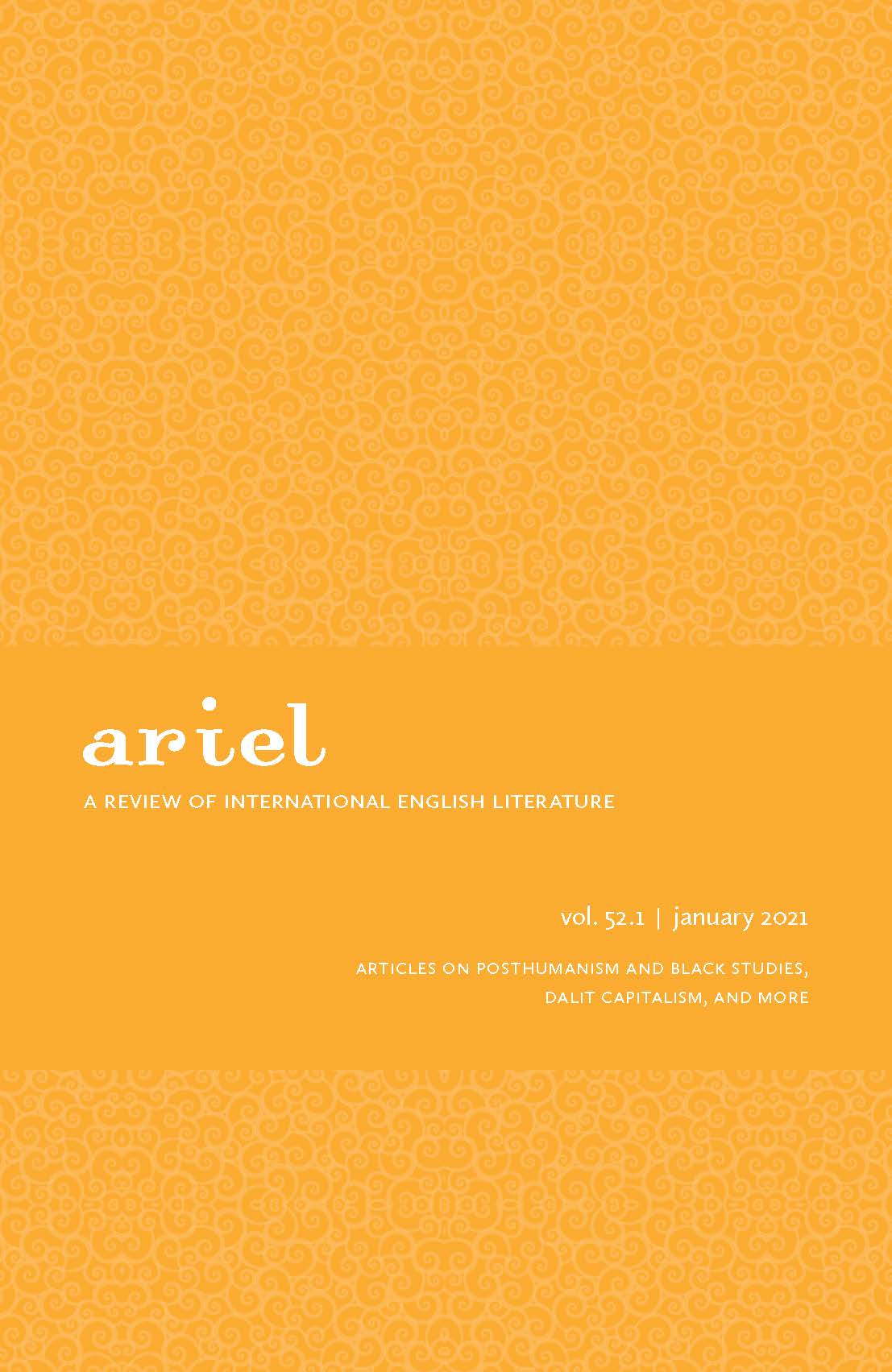Purchasing Power, Stolen Power, and the Limits of Capitalist Form: Dalit Capitalists and the Caste Question in the Indian English Novel
Keywords:
Indian Anglophone Novel, Caste, Capitalism, Dalit, ReadingAbstract
Over the last ten years, a growing number of Indian English novels have featured a low caste or Dalit protagonist, portraying him as a fraud or a con artist. Simultaneously, there has been a rise in studies that have criticized these novels for their extolment of neoliberal values and lack of a political vision. This essay considers another way to read these novels. It situates one recent novel about caste—Manu Joseph’s Serious Men (2011)—as part of the same entrepreneurial cultural imaginary as the real-world self-fashioned “Dalit capitalists.” “Dalit Capitalism,” coined by Chandrabhan Prasad, a Dalit writer and activist, refers to an aspirational encounter of Dalits with forces of global capital. With a desire to narrativize a life unmarked by caste, both Dalit protagonist of Serious Men and the Dalit capitalists imagine power as unlinked from caste. The essay teases out their impossible and conflicted performance of this fantasy as an inherent critique of capitalist forms. A comparative approach diminishes the exceptionalism of the literary characterization—a common scholarly critique. Instead, the essay argues for a constitutive relation between the contemporary Indian English novels and the growing cleavage between Left and Dalit Ambedkarite politics in contemporary India.


